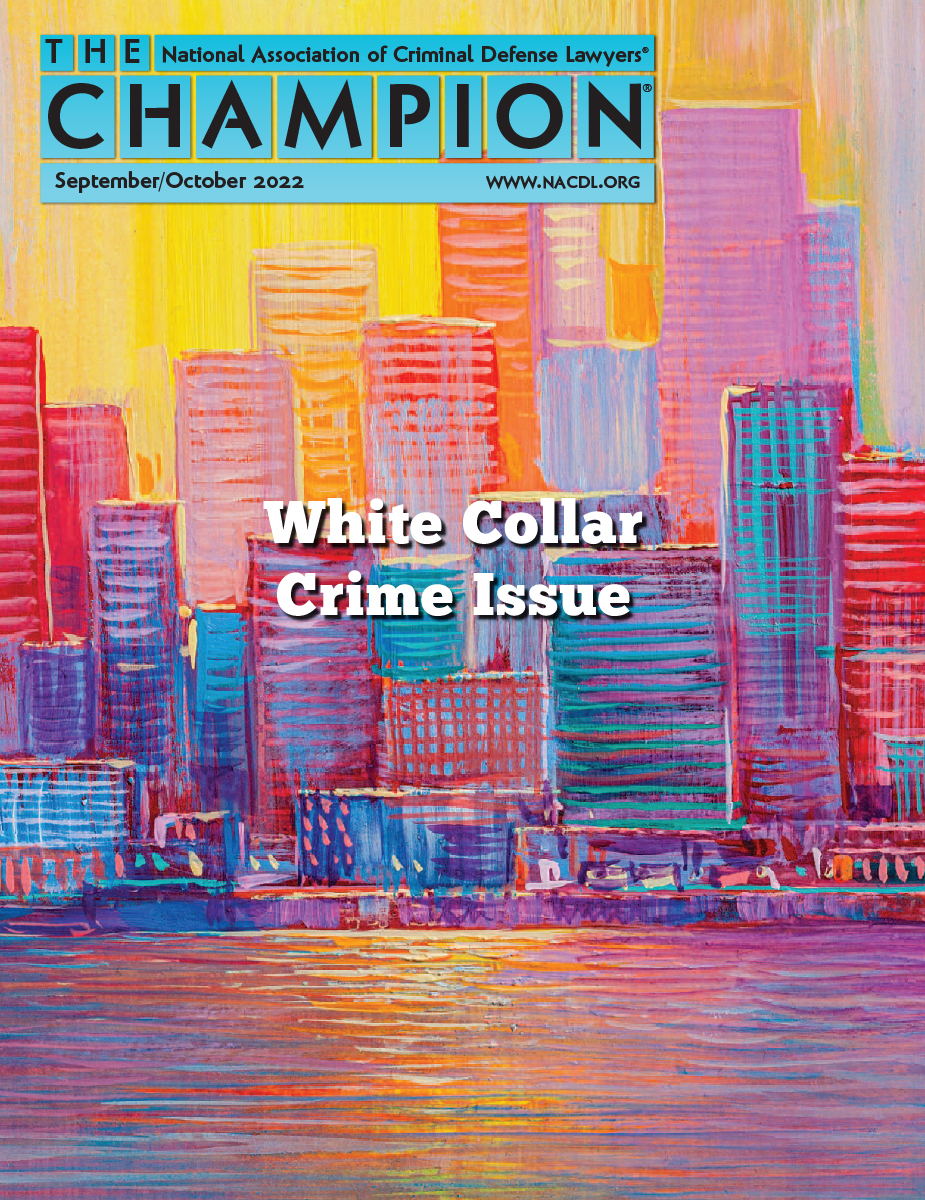September/October 2022

What can a sentencing mitigation video do that a client’s allocution cannot do? It can help achieve a downward departure from the sentencing guidelines and is more effective at humanizing the client than words on a page.
Articles in this Issue
-
Affiliate News
What events are NACDL affiliates hosting this month? Find out here.
-
Book Review: Junk Science and the American Criminal Justice System by M. Chris Fabricant
This month Gil Sapir reviews Junk Science and the American Criminal Justice System by M. Chris Fabricant.
-
Book Review: Redeeming Justice by Jarrett Adams
This month Jeff Gamso reviews Redeeming Justice: From Defendant to Defender, My Fight for Equity on Both Sides of a Broken System by Jarrett Adams.
-
Lessons Learned From the Government’s Dismissal of a 93-Count Superseding Indictment
Against a Company and Dozens of Individuals
The Story of United States v. Rocket Learning, LLC
A post-indictment dismissal is rare. The authors walk readers through United States v. Rocket Learning, pointing out that the government’s retreat in the fraudulent billing case was bittersweet because a profitable business is defunct, and dozens of employees are still picking up the pieces of their lives.
-
NACDL News: Baylor Law Honors NACDL President-Elect Michael Heiskell with Lawyer of the Year Award
NACDL News for September-October 2022
-
NACDL News: Lawsuit Against WI for Extreme, Unconstitutional Delays in Indigent Representation
NACDL News for September-October 2022
-
Pozner on Cross: You Don’t Understand This Question
What are negative questions? How can they cause confusion?
-
Practice Points: Telling a Story in a Mitigation Video
A sentencing mitigation video should be short (approximately 10 minutes) and should show the judge that the client is more than what the sentencing report says. Are there potential drawbacks? Yes. But the rewards are greater.
-
The Trump Appointees and the Federal-State Balance in the Prosecution of Crime
Four new Justices have joined the Supreme Court in just five years. The new Court has made clear its willingness to reexamine precedent. It is uncertain what the change in the Court’s composition portends for federal criminal law, but the government may face a more skeptical audience.
-
Twenty-First Century Jencks Material Needs an Updated Act
The Jencks Act allows the prosecution to withhold witness statements until after the witness testifies on direct examination. The timing of production and the procedural mechanisms provided by the Jencks Act are outdated, Daniel Gelb writes, particularly when a witness’s previously recorded statement references material in social media messages and text messages.
-
White Collar Crime Policy: Federal Restitution Law: What to Watch For and What to Avoid
Cases that end in conviction are often accompanied by an order of restitution. A restitution order can be a burden on a person for years even after a prison sentence has been served and a term of probation has been completed. Practitioners should pay attention to several key issues in order to zealously advocate for their clients – even after conviction and sentencing.
